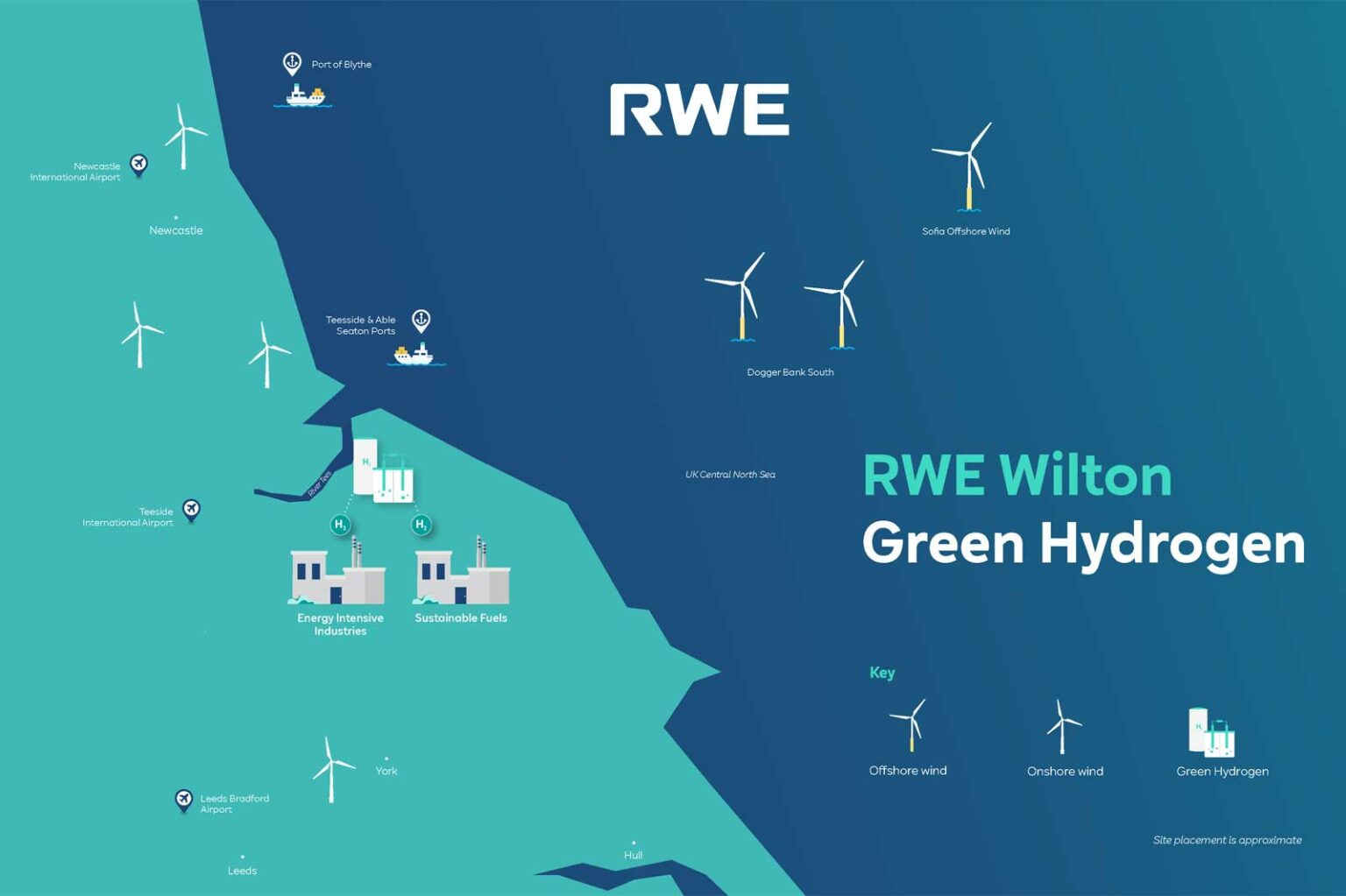RWE is making significant strides in its green energy initiatives with plans for a large-scale green hydrogen production plant in Teesside, for which the company has acquired a significant land option at Wilton International.
The proposed green hydrogen plant at Wilton International represents a pivotal development in RWE’s sustainability roadmap. With an initial capacity of up to 260 megawatts of electrolysis, the facility aims to produce up to five tonnes per hour of green hydrogen. This endeavor aligns with RWE’s broader strategy to expand its renewable energy portfolio and contribute to global decarbonization efforts.
Teesside, situated within the East Coast Cluster, emerges as a strategic hub for RWE’s green hydrogen ambitions. The region’s industrial landscape, coupled with proximity to potential hydrogen consumers and planned infrastructure, positions Teesside as a key player in the transition to a hydrogen-based economy. By leveraging existing resources and infrastructure, RWE aims to accelerate the industrial decarbonization of the region and support the UK’s net-zero ambitions for 2050.
RWE’s commitment to the Teesside project extends beyond infrastructure development. The company has initiated discussions with potential industrial partners to explore opportunities for leveraging green hydrogen in their decarbonization strategies. This collaborative approach underscores RWE’s dedication to fostering partnerships and driving meaningful change across industries.
The green hydrogen project holds immense promise for Teesside’s economic revitalization. Tees Valley Mayor Ben Houchen lauds RWE’s investment as a significant boon for the region, heralding the creation of new jobs and the expansion of clean energy production. This initiative not only aligns with environmental goals but also strengthens Teesside’s position as a hub for sustainable innovation and economic growth.





